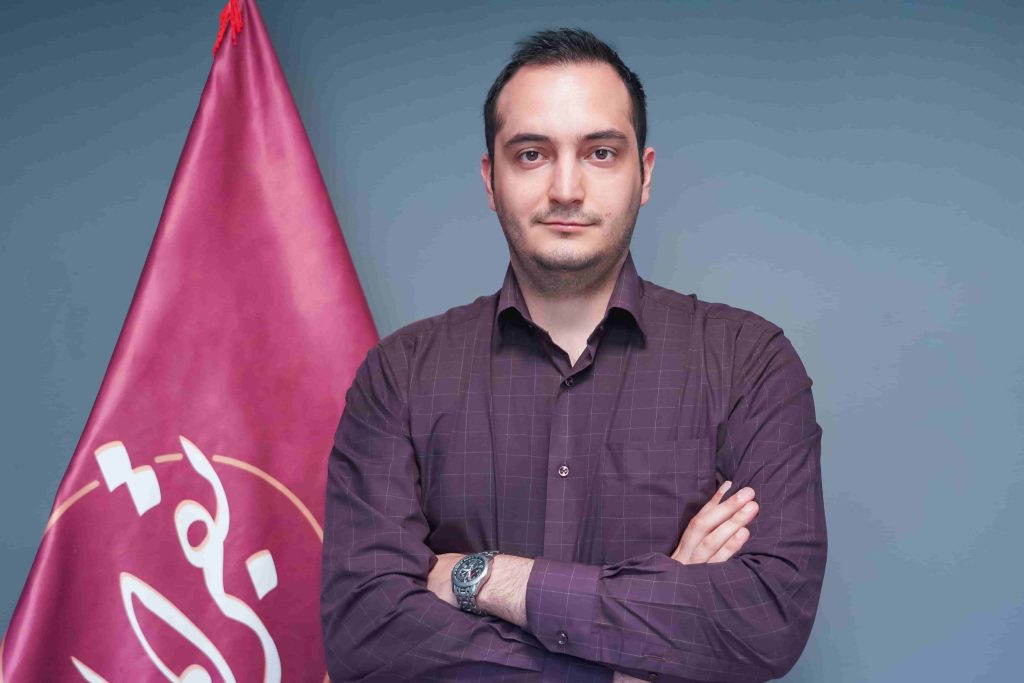Digital Health Platforms Facing Challenges Despite Regulatory Issues, with Power Outages and Data Centers as the Main Obstacles.
According to IDEA, digital health platforms are currently grappling with significant challenges, including regulatory hurdles, as well as the primary issues of power outages and data centers. The CEO of Boghrat, one of the digital health platforms, has stated that power outages and data center disruptions have negatively impacted their operations and eroded the trust of both healthcare providers and patients.
Boghrat is one of the digital health platforms that has been working on transforming into a fully digital hospital over the past year. According to the CEO of Boghrat, they aim to achieve this goal over the next few years.
Mehrshad Teymouri, the CEO of Boghrat, commented on the concept of establishing a virtual hospital: ‘The idea of a virtual hospital has been in our minds for the past five years. From the very beginning when the idea of Boghrat came to us, creating a virtual hospital was also in our plans. In the early years, I thought the market might not be ready for such a concept, but recently, we have been discussing it more to make people familiar with it.
Boghrat’s Main Objective: Creating a Virtual Hospital
Regarding the precise concept of a virtual hospital and its various components, Mehrshad Teymouri, the CEO of Boghrat, stated: ‘We aim to integrate services offered by a digitally-enabled hospital into a comprehensive platform. Currently, Boghrat provides online appointment booking, online consultation, electronic prescriptions, and electronic file completion. We envision a virtual hospital as an electronic clinic and emergency department, connected to imaging systems, laboratories, and pharmacies. We plan to achieve this goal within the next three to five years.’
Healthcare: A Promising Field for Digitization
Boghrat’s CEO emphasized the establishment of infrastructure for a virtual hospital, saying: ‘We have already initiated this program, preparing subsystems such as laboratories, pharmacies, and imaging. We will soon enter the market. The reason I mentioned approximately five years is to ensure that it is fully developed and functional. Certainly, we will face various challenges along the way, including regulatory hurdles, but we aim to engage the medical community early and extensively to help us achieve our goal. This concept is not yet present in other countries because the healthcare sector is relatively untapped, and its IT development has not been significant. We have been participating in the GITEX exhibition for the past two years, observing what other countries are doing, and we aim to be pioneers in providing such a service.’
Regarding the necessary capital for a virtual hospital, Boghrat’s CEO continued: ‘Boghrat has been active since 2017. We have never aimed to provide free services. From the beginning, we sold the software to doctors on an annual subscription basis, and we tried to advance Boghrat with the income we generated. In 2018, when we paid employees’ salaries, we had 5,000 tomans left, but we managed to settle all expenses. Therefore, based on the activities we had; we were able to solve financial matters. However, to reach the goal of a virtual hospital, we need to attract investment.’
Teymouri responded to the question of whether investors could hinder ambitious plans: ‘In recent years, we have spoken with multiple investors, and one fundamental issue that is almost common among them is their desire to constrain our activities within a specific framework. However, our ambition is our red line. We do not want to limit ourselves to a specific area, and we prefer to have other services within Boghrat.
Investors Hindering Ambition
He continued: “However, other investors perceive such goals and advancements as strange and unattainable. From the beginning, we had big ambitions at Boghrat, and we’ve put all our energy into this path. We have the capability for these tasks at Boghrat, but we need an investor who has the audacity to invest in our vision.”
He stated that many discussions have taken place regarding attracting foreign investment, but when many investors realized that we are Iranians, due to sanctions, continuous cooperation was not possible.
Coronavirus Had a Negative Impact on Boghrat’s Early Growth
Teymouri spoke about the impact of the coronavirus on Boghrat: “Due to the widespread nature of the coronavirus, our primary service, which was managing clinics, faced a significant decline because at that time, all doctors closed their clinics, and we were on the brink of failure under those circumstances. Nobody was willing to renew their subscription or purchase a new one. In this situation, we shifted our focus to providing online services and consultations, and we managed to get back on our feet. As the fear of COVID-19 diminished and clinics resumed operations, we expanded our electronic clinic management, electronic medical records, and online consultations across all healthcare sectors.”
Challenges with the Government
Teymouri discussed their challenges with the government: “Unfortunately, issues with the government have always existed for healthcare platforms, but the most significant pressure occurred when electronic prescription systems were introduced in the country, with the main authorities being Social Security and Health Insurance.”
He noted that although this milestone event had occurred, the lack of uniformity in drug coding and services within Iran posed a significant challenge. Each of the healthcare insurance providers, such as health insurance and social security, uses different codes and nomenclature for drugs and services. This means that the term a doctor writes for a patient may not match the registered term in health insurance or social security. These lists are updated, but the codes remain unchanged.
Transparency in Physicians’ Activities on the Platform
Teymouri talked about the challenge of transparency in physicians’ activities on the platform: “This concern is difficult and has a complex solution, which is why we cannot undertake a specific effort in this area. Our primary goal is to encourage physicians to embrace digital health. If we try to put excessive pressure on physicians in such matters, we cannot achieve our main goal. For this reason, we handle it delicately, and we are not concerned with the financial aspects of physicians’ activities.”
The Future of Digital Healthcare Platforms
The CEO of Boghrat explained his vision for the future of digital healthcare platforms: “I envision a very promising and rapidly developing future, and despite competitors, all of us can help each other advance in digital health. However, because the healthcare sector is under government control, it is not entirely clear to me, and we must wait for decisions from the government every day.
Power Outages Have Affected Health Platforms
He said: “In the country, there is a system called the PAS system. We have obtained this license, but it has never been implemented, and due to the lack of implementation by Social Security and health insurance, they have proceeded with electronic prescriptions. In these circumstances, we are concerned that the government may make a decision of its own to halt private platforms.”
According to Teymouri, challenges like the internet, power outages, and data centers have greatly impacted their work. He continued: “We use several major data centers in the country, but these power outages have prevented us from providing proper services.






No Comment! Be the first one.